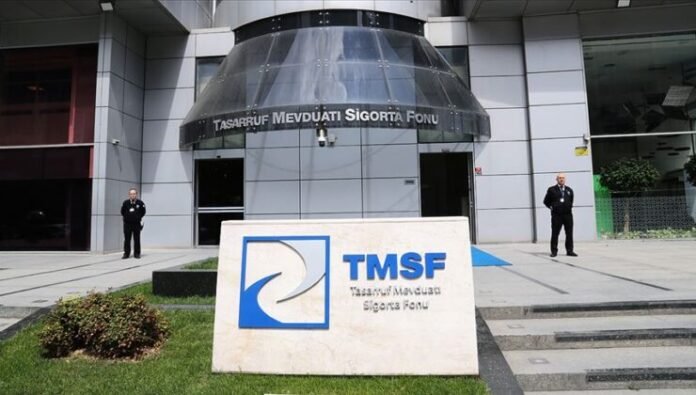The Savings Deposit Insurance Fund (TMSF), the state body that oversees confiscated assets, has emerged as one of Turkey’s largest conglomerates following the government’s recent wave of trustee appointments to companies, the Kronos news website reported.
The number of companies placed under TMSF trusteeship by the government rose to 1,012, up from 699 last September, an increase of nearly 45 percent. The total value of assets under its management has reached 500 billion Turkish lira (approximately $15 billion).
The TMSF is Turkey’s state deposit insurer, with the authority to take over failed banks and manage seized or transferred assets.
In a parliamentary question, opposition Democracy and Progress Party (DEVA) lawmaker Burak Dalgın said TMSF’s expansion underscores the state’s tightening grip in the economy. “If we include the Turkey Wealth Fund and state-owned enterprises, the state has become the country’s largest business owner,” he said.
Dalgın asked Finance Minister Mehmet Şimşek to provide the latest details on the total wealth managed by the state, the number of companies seized and placed under the TMSF and the amount of revenue generated through the sale or transfer of these companies.
The TMSF’s mandate was expanded through government decrees issued after a 2016 coup attempt and further strengthened by legislative amendments that entered into force on January 31,2025.
Its role in the economy has expanded particularly through the seizure of businesses over alleged links to the faith-based Gülen movement.
Turkish President Recep Tayyip Erdoğan has been targeting followers of the Gülen movement, inspired by the late Muslim cleric Fethullah Gülen, since corruption investigations in December 2013 implicated him as well as some members of his family and inner circle.
Dismissing the investigations as a Gülenist coup and a conspiracy against his government, Erdoğan began to target the movement’s members. He designated the movement as a terrorist organization in May 2016 and intensified the crackdown on it following an abortive putsch in July of the same year that he accused Gülen of masterminding. The movement strongly denies involvement in the coup attempt or any terrorist activity.
Since then, the Erdoğan government has seized schools, universities, media outlets, companies and their buildings and the assets of individuals, corporations and organizations that were allegedly linked to the movement.
Among the major conglomerates the TMSF has taken over are Dumankaya, Boydak Holding, the Koza Ipek Group and Kaynak Holding. The TMSF, which has been managing companies confiscated under post-coup emergency decrees since 2016, has continued liquidating assets belonging to individuals and corporations accused of ties to the Gülen movement.
According to figures published by Turkey’s state-run Anadolu news agency in July, Turkish authorities have seized 784 companies with a total asset value of TL 42.3 billion at the time of their takeover, an estimated $14 billion in 2016 USD terms, as part of the sweeping crackdown on the Gülen movement.
Critics contend that the planned asset sales represent the culmination of a broad confiscation policy that has stripped thousands of people of their property without judicial oversight or due process. Human rights groups warn that such measures constitute collective punishment and violate international conventions protecting the right to property and prohibiting arbitrary deprivation.















